Featured
Tourism and Covid-19: An opportunity to rebuild better

By Michelle Kovacevic
Scenarios by the World Tourism Organisation (UNWTO) suggests that tourism could decline by 60-80 per cent this year, completely decimating the sector that is a key driver of growth for the world’s poorest countries.
“The impacts of Covid-19 on tourism are unprecedented. With borders closed, hotels shut down and planes on the ground tourism has come to a total standstill in the last two months,” said Zoritsa Urosevic, Director of Institutional Relations and Partnerships at UNWTO.
“The best-case scenario is a 58 per cent decline in international tourist arrivals if borders start gradually opening in July. This would be the biggest dip in international tourist arrivals in history.”
One hundred per cent of all world destinations have implemented travel restrictions in the wake of Covid-19, and this means 67 million fewer international tourists up to March, and $80 billion in lost exports.
Crucial sector for millions
Tourism is one of the largest and fastest-growing sectors in the world, representing nearly 10 per cent of the world’s GDP, 30 per cent of global services exports and providing one out of every 11 jobs.
Tourism is a crucial growth pillar for least developed countries (LDCs). In 2019, LDCs received 41 million international tourist arrivals – more than double the volume registered in 2010 – and earned $26 billion from international tourism, or 11 per cent of their total exports.
“Tourism has a very broad value chain. It relies on industries like hospitality, transport and recreation but it also feeds demand in food, arts, design, cultural products and services. This is one of the reasons that it is such an important sector for development,” Urosevic said.
The tourism value chain also provides important direct and indirect employment opportunities for vulnerable communities such as women and youth.
Tourism was also one of the main factors enabling Cabo Verde, the Maldives and Samoa to graduate from LDC status.
Despite all this, tourism is not often a government priority nor a major action sector for donors. Between 2006 and 2013, tourism comprised only 0.09 per cent of Official Development Assistance (ODA) and 0.4 per cent of aid for trade disbursements.
“This has meant that many LDCs have struggled to make the substantial infrastructure and utility investments needed to develop their tourism sector, become more competitive and advance their capacity for inclusive economic growth,” Urosevic said.
Opportunity in crisis
One of the lessons from tourism’s collapse, Urosevic said, is that governments have become fully aware of the importance of tourism to their economies, and the associated socioeconomic impacts, especially when it comes to the millions of jobs that are now at risk.
“This means that we have an opportunity to adjust our focus and step up support to invest in tourism, in particular green investment,” she said.
“What is very clear is that this work has to be done right now. We need to help countries survive through the crisis and prepare to receive tourists again.”
The World Tourism Organisation has released 23 recommendations for actions to support the tourism sector to bounce back. In LDCs, the most urgent focus has been on supporting tourism ministers to secure financial packages and additional borrowing options for mitigation and recovery offered by the International Monetary Fund, the World Bank and other International finance institutions.
“We are helping these countries to secure the financial capacity to sustain and support tourism businesses surviving and workers to have a wage, particularly informal workers who are not registered anywhere and need social support to survive,” Urosevic said.
They have also been offering support to strengthen institutions, as well as an integrated technical assistance package covering immediate economic recovery, implementation of protocols to reopen, marketing and digitalisation.
“One of our focuses in reopening destinations is strengthening of domestic and intra-regional markets. We think this could help the sector tremendously in the immediate and as we build recovery,” Urosevic said.
The tourism sector will definitely bounce back, Urosevic said, because of the deep desire of people to travel and connect with others.
“Just listen to the people around you… everybody wants to go somewhere. Travel has become part of our DNA. We need this dream time and moment of retreat with ourselves, nature and other cultures,” she said.
“But I think travellers are going to be different. This crisis has forced many of us to live locally and so we may think more about that when travelling internationally – seeking out local food, local purchases – and growing the local production of foods and goods for the benefit of everyone, but we will TravelTommorrow!”
Note: This article was originally published on Trade for Development News. To view the original article, please follow this link.
Awards
Constance Halaveli and Constance Moofushi earn top scores in 2026 Booking.com awards
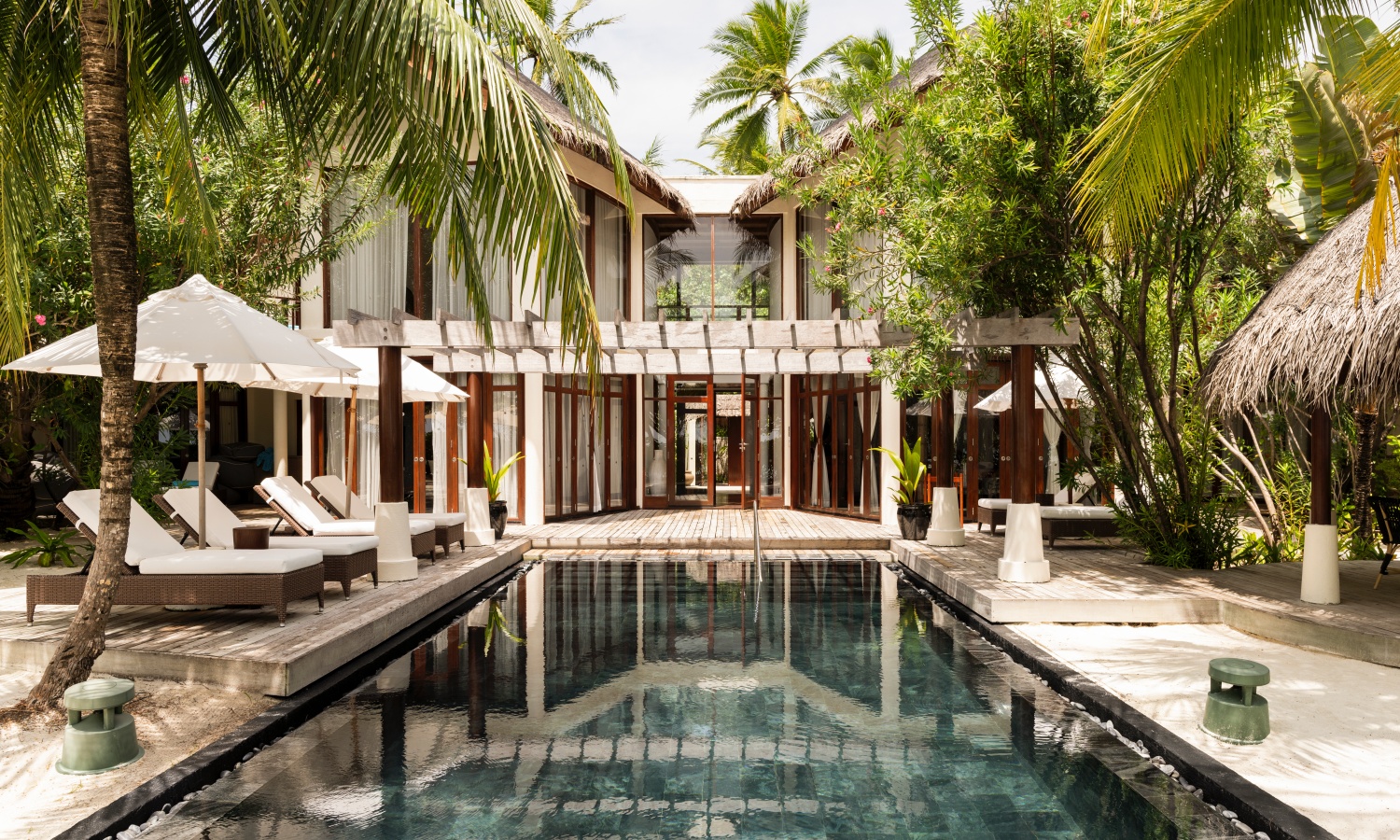
Constance Hospitality has been recognised in the 2026 Traveller Review Awards by Booking.com, with its Maldivian resorts achieving some of the highest scores within the group’s portfolio.
In the Maldives, Constance Halaveli Maldives received an outstanding score of 9.8 out of 10, while Constance Moofushi Maldives achieved 9.7. The ratings, based on verified guest reviews, reflect consistently high levels of guest satisfaction and service delivery.
Constance Halaveli Maldives, known for its spacious overwater and beachfront villas, personalised service and refined dining concepts, continues to perform strongly among travellers. Constance Moofushi Maldives, positioned as a barefoot chic resort with an all-inclusive concept, also maintains a high guest approval rating, supported by its diving experiences and relaxed island atmosphere.
While the wider Constance portfolio across the Indian Ocean was recognised, the Maldives properties stand out as the group’s highest-rated resorts in the 2026 awards cycle.
Commenting on the recognition, Jean-Jacques Vallet, Chief Executive Officer of Constance Hospitality, stated that the awards reflect the professionalism and commitment of the teams on the ground. He added that guest feedback remains central to maintaining service standards and delivering consistent experiences across the group’s destinations.
The recognition reinforces the position of Constance Halaveli Maldives and Constance Moofushi Maldives as leading performers within the Maldives’ competitive luxury hospitality sector.
Featured
Year of the Horse celebrations across Sun Siyam’s Luxury, Privé and Lifestyle resorts
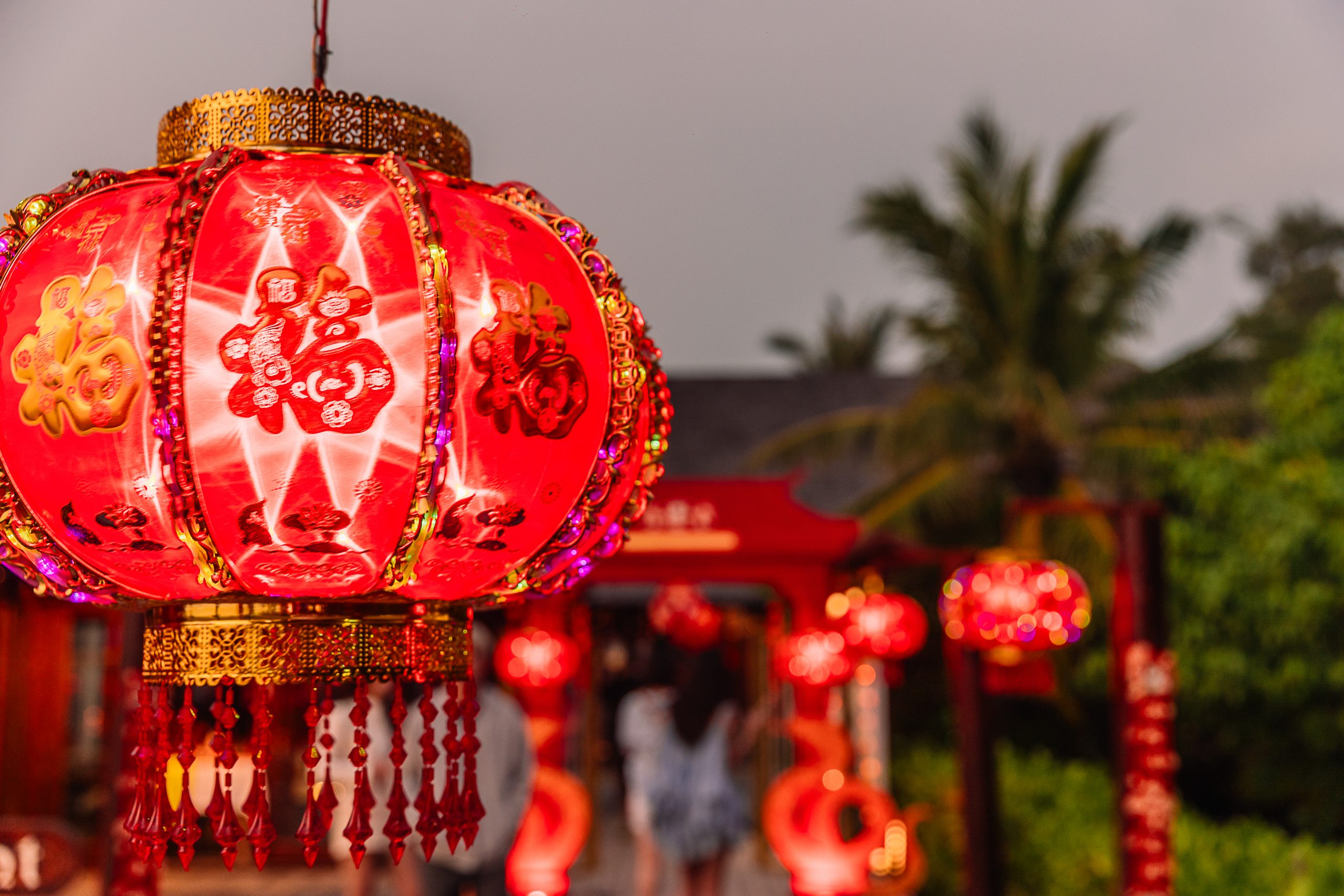
Sun Siyam Resorts is marking the Lunar New Year across its Luxury, Privé and Lifestyle collections with a coordinated programme of cultural experiences, festive dining, music and family-focused activities from 15 to 20 February 2026. Celebrating the Year of the Horse, each resort’s programme reflects its individual character while embracing the spirit of renewal and togetherness associated with the season.
Siyam World – Lifestyle Collection
At Siyam World, Lunar New Year celebrations combine cultural heritage with contemporary island energy. A highlight of the programme is a live showcase featuring Chinese-inspired DJ sets paired with the traditional guzheng, creating a fusion of electronic rhythms and classical melody. Performances by the Chaozhou Shantou lion dance troupe add further cultural depth, with guests invited to observe, participate and learn traditional movements.
Sun Siyam Olhuveli – Lifestyle Collection
Sun Siyam Olhuveli is presenting a relaxed Lunar New Year programme shaped by traditional symbolism and island living. Throughout the week, the resort will host family-friendly cultural activities, traditional performances and live music. Red-themed décor and festive elements will set the tone, while dragon displays and cultural showcases bring movement to the island’s central spaces. The celebrations peak on 16 and 17 February with performances by DJ Slim Belghith, whose international sound will accompany evening festivities.
Sun Siyam Iru Veli – Privé Collection
At Sun Siyam Iru Veli, the Year of the Horse will be marked through a programme that combines cultural traditions with family-oriented experiences. The Kids Club will host themed activities including red envelope crafting, lantern making, zodiac-inspired art and traditional games. The Fire Horse Pool Party at Chemistry will bring families together with music and refreshments. Dining highlights include hot pot lunches and dinners, along with a dedicated Chinese section titled “Flavours of Fortune” at the Aqua Orange buffet. Guests may also enjoy seasonal spa treatments at Ocean Spa designed to promote balance and renewal.
Sun Siyam Vilu Reef – Privé Collection
Sun Siyam Vilu Reef will conclude its celebrations with a Grand Spring Gala Dinner featuring international cuisine alongside Chinese specialities. The evening includes a traditional lion dance performance, filling the island with movement and symbolic gestures intended to welcome prosperity and good fortune.
Sun Siyam Iru Fushi – Luxury Collection
At Sun Siyam Iru Fushi, Lunar New Year celebrations will blend Chinese traditions with Maldivian island experiences. Dining features include beachfront seafood platters, Blue Lobster barbecues and traditional hot pot dinners, complemented by chocolate, cheese and champagne tastings.
Younger guests may take part in dragon dance workshops and lantern painting sessions, while signature resort experiences such as Sunset Jet Car rides, Cinema by Moonlight on a private boat and floating breakfasts add further variety. Evening turndown moments incorporate local Maldivian touches, reflecting the resort’s approach to cultural exchange. With 15 dining venues, family-oriented villas and dedicated adults-only spaces, the resort’s programme is designed to accommodate a broad range of guests.
Commenting on the celebrations, Ahmed Naufal, Group Director of Business Development, noted that China remains an important market for Sun Siyam. He stated that the Lunar New Year celebrations provide an opportunity to honour Chinese traditions while delivering experiences consistent with the group’s standards of hospitality.
Across its Maldivian portfolio, Sun Siyam Resorts presents Lunar New Year as a season of cultural appreciation, shared celebration and renewal by the sea.
Action
LUX Tennis joins St. Regis Maldives Vommuli to expand active lifestyle programme

St. Regis Maldives Vommuli Resort has announced a partnership with LUX Tennis, strengthening the resort’s established tennis offering and introducing plans for a new padel court. The collaboration expands the resort’s active lifestyle programme, with a particular focus on families and multi-generational travel.
The St. Regis brand draws on the legacy of the Astor family, founders of the original St. Regis New York, whose Gilded Age lifestyle celebrated refined leisure and sporting pursuits. Tennis, in particular, became a symbol of elegance within the Astor social circle, reflecting a culture shaped by hospitality, recreation and sophistication. This heritage continues across the St. Regis portfolio today, where classic sports remain an integral part of the brand’s identity.
Set within the resort’s private island environment, the enhanced LUX Tennis programme is designed to elevate on-island tennis experiences for guests of all ages and skill levels. The programme features expert-led coaching, bespoke clinics and visiting residencies by internationally recognised professionals, offering guests opportunities to train, play and engage with elite talent in an accessible and inspiring setting.
Confirmed visiting professionals include Angelique Kerber, three-time Grand Slam champion and former world number one, who will visit from 29 to 31 March 2026, and Feliciano López, former Spanish champion with a career-high singles ranking of world number 12, scheduled from 16 to 17 May 2026.
The expanded tennis programme is designed to integrate seamlessly with island life, offering everything from relaxed family matches and junior-friendly coaching to more focused sessions for experienced players. Activities are structured to complement time spent at the beach, spa experiences and family dining.
The St. Regis Maldives Vommuli Resort features 77 beachfront and overwater villas, each with a private pool, alongside facilities such as the John Jacob Astor Estate, the largest overwater three-bedroom villa in the Maldives. Guests also have access to the award-winning Iridium Spa, six dining venues and a private yacht available for charter, reinforcing the resort’s positioning as a destination for both leisure and active pursuits.
-
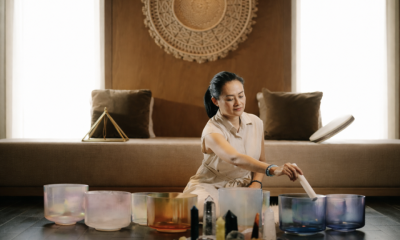
 News1 week ago
News1 week agoThe Ritz-Carlton Maldives, Fari Islands to mark International Women’s Day with ‘Give to Gain’ programme
-
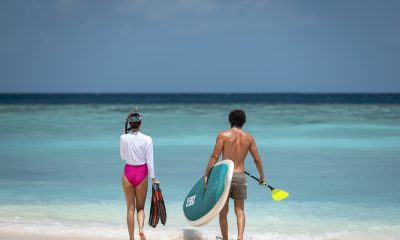
 Action1 week ago
Action1 week agoSimply summer at Milaidhoo: Invitation to slow living in the Baa Atoll
-
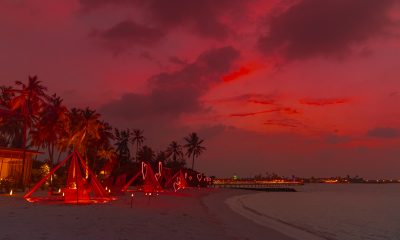
 Featured1 week ago
Featured1 week agoLove loud and laid-back: Valentine’s Day across CROSSROADS Maldives
-
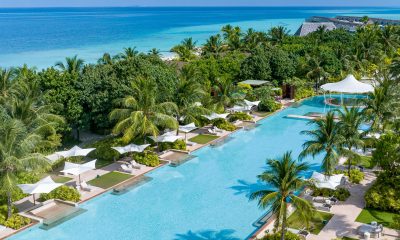
 Culture7 days ago
Culture7 days agoKuda Villingili presents family-focused Eid al-Fitr experience in Maldives
-
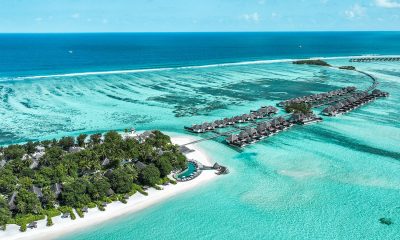
 Featured1 week ago
Featured1 week agoFour Seasons Maldives brings Fire Horse energy to Lunar New Year celebrations
-
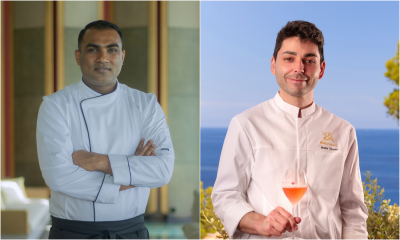
 Cooking1 week ago
Cooking1 week agoMichelin-starred Chef Jaume collaborates with One&Only Reethi Rah’s TAPASAKE for four-hands dinner
-
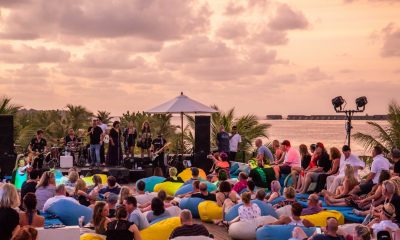
 Entertainment1 week ago
Entertainment1 week agoStrong demand sees Kandooma Maldives 2026 concert series selling out early
-

 Awards1 week ago
Awards1 week agoAtmosphere Core earns triple honours at Layalina Editor’s Choice Awards











